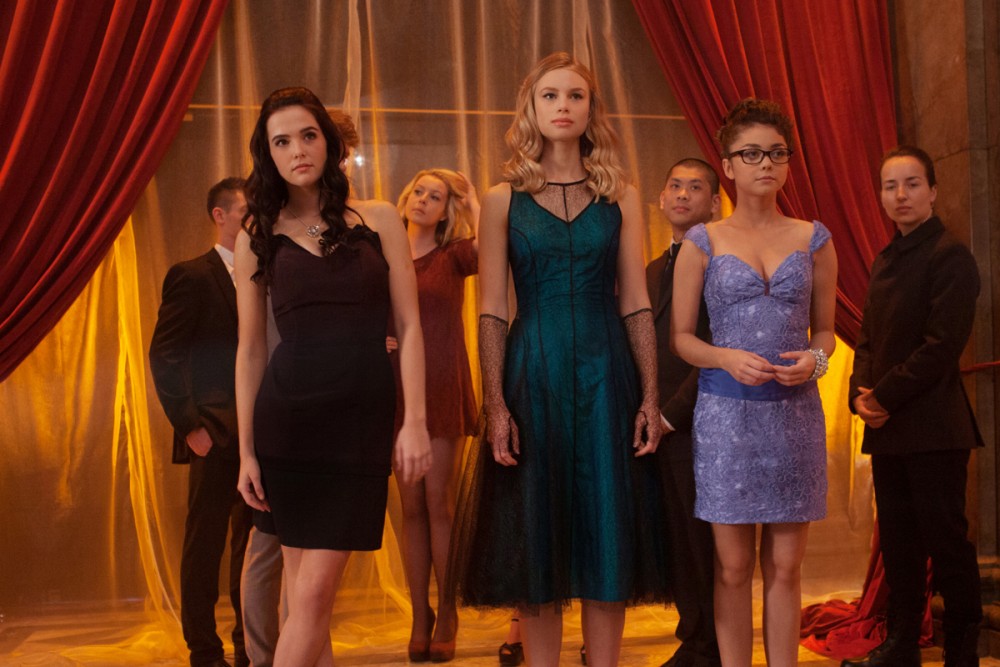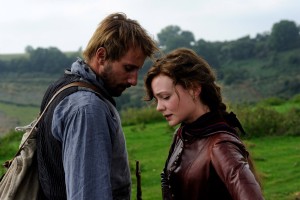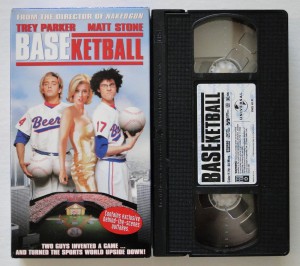…and the Critical Dismissal of Films Made for Young Adult Women

If the plot for Vampire Academy confounds you, you probably weren’t paying attention. The first act of the film runs you through some background on what’s going on with its two leads, as well as the political and social hierarchy of vampires and their half-human guardians. Does the film launch into an almost breakneck pace from the get-go? Sure. But as tough as the storyline is to follow at times, it’s far from the mess that many describe it as, though some of the accents and mumbling might warrant subtitles for those who don’t have the volume blasting the whole time or the convenience of a rewind button.
With most series adaptations, the question of why certain books were split into two movies is always asked, be it Breaking Dawn, The Deathly Hallows, and even the upcoming Mockingjay. As of yet, none of these has been worth the split, and the answer always comes down to money. But for once, here’s a film that could have used a nice split; not into two films, but rather into a television series. Not having read this particular collection, I can still easily say that Vampire Academy would have fallen perfectly into CW’s or MTV’s bundle of solid YA-geared paranormal/supernatural television programming (see Vampire Diaries, Teen Wolf, early Supernatural). A hefty story with a lot of background and what seems to be a lot of back and forth with moods and relationships deserves a medium suited for its material, and the likelihood of Vampire Academy being easier to follow for those who have read the book series is high. Plus, it’s not like the Weinstein Company hasn’t pushed for certain films to slide comfortably into television regardless of the lack of need for the format.
The men who helmed this film have both delivered some of the most influential teen films of their day. Writer Daniel Waters gave the world the brilliant Heathers in the eighties and director Mark Waters handed us Mean Girls only a decade ago. Don’t get me wrong: both of these films are far better than Vampire Academy. But some of what made them both good is still present; the self-awareness, the jabs at teen movies of lesser quality, the silly dialogue, the lack of total contempt for its characters. Even what wasn’t in those former films makes it a hell of a watch; Olga Kurylenko’s gorgeous costuming, surprising twists that likely came from the book series, or simply the fact that its women have a sense of agency over their own lives in an oppressive society.
Acting like every series about young adults in paranormal situations revokes all agency from women is wrong, but so many of them do. Watching a female lead go all doe-eyed and weak in the knees for a man at every single turn can be frustrating for anyone to watch. Teaching the young girls these films are aimed at to idolize the men they’re attracted to, allowing them to be thrown into any romantic situation regardless of danger, is bullshit. In a miraculous turn of events, the characters in this film actually have some semblance of respect for each other, especially with regards to discussions of sexuality and assault. Vampire Academy constantly reminds us that acting under the influence of any substance (in this case magic) is a problem. After a scene in which two characters nearly have sex under the power of a charm, the man acknowledges that the act would have been considered violence and is glad the spell was disengaged before anything could happen. Too many films make easy jokes and lazy plots about having sex with a woman who is drunk or drugged, and having a film that makes both the women and men in the film acknowledge that this is assault and not romance is a rarity.
Another wonderful thing is that neither lead is forced into isolation by the author, only existing to pine for a man. The two girls share a bond stronger than what most in the magic-heavy universe have seen, and their friendship and love for each other resonates greatly in the way the story unfolds. What makes it all the better is that both of the characters are actually pretty dang interesting and well-acted. Zoey Deutch’s Rose is the closest thing we’ll ever get to a mixture of Buffy Summers and Lindsay Weir. As eye-rolling as she is about all the popularity nonsense that comes with the high school scenario, she stills plays into the romance and the shopping and all the things typically shown to make a teen girl tick. It’s that balance between the two sides that makes her as refreshing a protagonist as either one of the two mentioned were in the nineties.
Lucy Fry’s Lissa (who plays her young princess role up beautifully) sometimes succumbs to the foolish temptations that peer pressure provides, but she brings it all back with no problem. In fact, a rousing speech she gives (however unsubtle it is at delivering the film’s lesson) should be appreciated immensely, especially when she says that every one of these students deserves “dignity, kindness, and something more original than gossip, snobbiness, slut-shaming, and bullying.” You don’t get enough films aimed at young women that take the time to remind them not to shame each other for whatever’s natural. It’s further proof that the film’s social awareness is far and above the level of most of its competitors.
But while its competitors are certainly a major factor in looking at just how good Vampire Academy is, something that’s more important to take into account is the way its detractors approach it. It’s astounding how often I see critics dismissing films that — while not on the scale of whatever the latest masterpiece is — are pretty damn good for the material they’re tackling. More often than not, those films are made for women, sometimes even by women, but they’re specifically geared toward a young adult audience. Simply sticking to those with female protagonists, as those are the ones that always seem to get the most flack, films like Twilight, Beautiful Creatures, Divergent, and even the well-received Hunger Games, could be lumped in with Vampire Academy.
Now, the slighting of films like Twilight, Beautiful Creatures, and Divergent only go so far; each one maintaining a comfortable percentage in the 40s, gauged from 150-200 reviews each, on Rotten Tomatoes. Weirdly enough, the swiping of Vampire Academy under the rug is even greater, only reviewed by a grand total of 41 critics to date — with a shameful 10%. Even The Mortal Instruments: City of Bones and its 12% was reviewed by over 100 critics. Sure, this last film wasn’t exactly marketed to the fullest potential (due to the Weinstein Company handling its release almost as poorly as they did with another title this year, The Immigrant), and it isn’t covered from head to toe with stars, but regardless, there’s no reason for this film to be this overlooked.
If I’m to make a bold accusation, it’s that film critics — particularly older men without an ounce of interest in films marketed to young adults — have actively chosen to ignore and dismiss the work. The general consensus seems to be, “Well, Twilight sucked, so why should I watch more vampire movies?” And I counter that notion; just because Twilight happened doesn’t mean every film in the young adult paranormal romance should be dismissed, and this is certainly not your average work of the genre. But even for those who did review it, the accusations of it being outright trash because it shares similarities with other paranormal romance works is alarming. Just to make a point, here are some review excerpts from RT all featuring that other barely-comparable film:
- “Joining the painful list of Goth-drenched Twilight franchise wannabes.”
- “a toothless horror-adventure-comedy-romance motivated by The Weinstein Company’s eagerness for a Harry Potter-meets-Twilight franchise.”
- “plays like the crassest possible mashup of Harry Potter and Twilight elements”
- “This attempt to capture the magic of the Twilight and Harry Potter franchises tries too hard to pack all the backstory and borrowings into one film.”
Yes. Twilight. Because vampires and young adults. Frankly, the comparisons to Harry Potter are even lazier than that, as the only real similarities present are the existence of a school and magic; neither of which is a particular focus outside of Lissa’s power to revive those in harm. And yet, these reviews are actually pretty nice considering they’re dismissing a film for the most superficial set of reasons possible. Let’s take a lot at those who decide to forego complaints against the film for complaints against the audience its portraying and marketed to, even when the review isn’t actually negative:
- “I thought the teenage dialogue was puerile”
- “teen-magnet wannabe”
- “the target audience – teen girls likely to spend as much time gossiping in the theater lobby as they are to actually watch the movie”
- “For someone whose entire young life revolves around Rose, Lissa, and the entire VA clan, this movie will be more than enough to validate your endless obsession.”
Which brings me to the question: are we as critics expecting too much from young adult films or am I, in my frustration and wishful thinking, expecting too little? Even though I’d never ventured into the novels that this film is based on, I found that Vampire Academy validated any expectations I had with it. Ridiculous? Check. Witty? Check. A bunch of quotable lines? Check. Geared towards the young adults that have read the novel? Check. Olga Kurylenko being fabulous? Check. That’s all I wanted. That’s all I got.
So instead of shaming everyone who enjoys this film, as many find it their right to do, learn to voice your issues with movies without telling the people who enjoy it they’re idiots (as the word teen has pretty much become equivalent to idiot over the years). Critics are meant to understand the demographic a film is made for and criticize the film itself in order to educate and inform that audience, not simply address them as beneath your all-knowing grace. As a critic and your average viewer, I enjoyed Vampire Academy for what it was: a delightful vampire film that can’t escape some of its trappings, so it uses them to launch itself into something that’s just plain fun. Even though the film sets itself up for one, the likelihood of a sequel is slim to none — considering critical panning and a lack of rabid following a la other YA series’ of recent times — but we can all hope that someone out there realizes the potential that lies within this one. Fingers crossed, we’ll be seeing this on television sometime in the near future, which is exactly where it deserves to be, and where young women will have the chance to see a paranormal series that might actually do them more good than harm.
—
Vampire Academy is currently available on Blu-ray, DVD, and for purchase or rental on Amazon Instant Video.
Directed by Mark Waters; written by Daniel Waters; based on the novel by Richelle Mead; starring Zoey Deutch, Lucy Fry, Danila Kozlovsky, Gabriel Byrne, Dominic Sherwood, Olga Kurylenko, and Sarah Hyland, and Sami Gayle; 104 minutes.



 Derek
Derek
 Isabelle
Isabelle